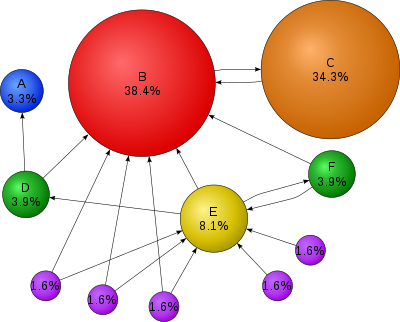Sunday, February 14, 2010
THE BIG REVIEW BY VISHNU
Wednesday, February 10, 2010
Google leaps language barrier with translator phone
GOOGLE is developing software for the first phone capable of translating foreign languages almost instantly — like the Babel Fish in The Hitchhiker’s Guide to the Galaxy.
By building on existing technologies in voice recognition and automatic translation, Google hopes to have a basic system ready within a couple of years. If it works, it could eventually transform communication among speakers of the world’s 6,000-plus languages.
The company has already created an automatic system for translating text on computers, which is being honed by scanning millions of multi-lingual websites and documents. So far it covers 52 languages, adding Haitian Creole last week.
Google also has a voice recognition system that enables phone users to conduct web searches by speaking commands into their phones rather than typing them in.
Now it is working on combining the two technologies to produce software capable of understanding a caller’s voice and translating it into a synthetic equivalent in a foreign language. Like a professional human interpreter, the phone would analyse “packages” of speech, listening to the speaker until it understands the full meaning of words and phrases, before attempting translation.
“We think speech-to-speech translation should be possible and work reasonably well in a few years’ time,” said Franz Och, Google’s head of translation services.
“Clearly, for it to work smoothly, you need a combination of high-accuracy machine translation and high-accuracy voice recognition, and that’s what we’re working on.
“If you look at the progress in machine translation and corresponding advances in voice recognition, there has been huge progress recently.”
Although automatic text translators are now reasonably effective, voice recognition has proved more challenging.
“Everyone has a different voice, accent and pitch,” said Och. “But recognition should be effective with mobile phones because by nature they are personal to you. The phone should get a feel for your voice from past voice search queries, for example.”
The translation software is likely to become more accurate the more it is used. And while some translation systems use crude rules based on the grammar of languages, Google is exploiting its vast database of websites and translated documents to improve the accuracy of its system.
“The more data we input, the better the quality,” said Och. There is no shortage of help. “There are a lot of language enthusiasts out there,” he said.
However, some experts believe the hurdles to live translation remain high. David Crystal, honorary professor of linguistics at Bangor University, said: “The problem with speech recognition is the variability in accents. No system at the moment can handle that properly.
“Maybe Google will be able to get there faster than everyone else, but I think it’s unlikely we’ll have a speech device in the next few years that could handle high-speed Glaswegian slang.
“The future, though, looks very interesting. If you have a Babel Fish, the need to learn foreign languages is removed.”
In the Hitchhiker’s Guide to the Galaxy, the small, yellow Babel Fish was capable of translating any language when placed in the ear. It sparked a bloody war because everyone became able to understand what other people were saying.
Monday, February 8, 2010
THE BIG REVIEW BY VISHNU
Google the best invention of the decade
In other words, a PageRank results from a "ballot" among all the other pages on the World Wide Web about how important a page is. A hyperlink to a page counts as a vote of support. The PageRank of a page is defined recursively and depends on the number and PageRank metric of all pages that link to it ("incoming links"). A page that is linked to by many pages with high PageRank receives a high rank itself. If there are no links to a web page there is no support for that page.
Google assigns a numeric weighting from 0-10 for each webpage on the Internet; this PageRank denotes a site’s importance in the eyes of Google. The PageRank is derived from a theoretical probability value on a logarithmic scale like the Richter Scale. The PageRank of a particular page is roughly based upon the quantity of inbound links as well as the PageRank of the pages providing the links. It is known that other factors, e.g. relevance of search words on the page and actual visits to the page reported by the Google toolbar also influence the PageRank.[citation needed] In order to prevent manipulation, spoofing and Spamdexing, Google provides no specific details about how other factors influence PageRank.[citation needed]
Numerous academic papers concerning PageRank have been published since Page and Brin's original paper.[5] In practice, the PageRank concept has proven to be vulnerable to manipulation, and extensive research has been devoted to identifying falsely inflated PageRank and ways to ignore links from documents with falsely inflated PageRank

